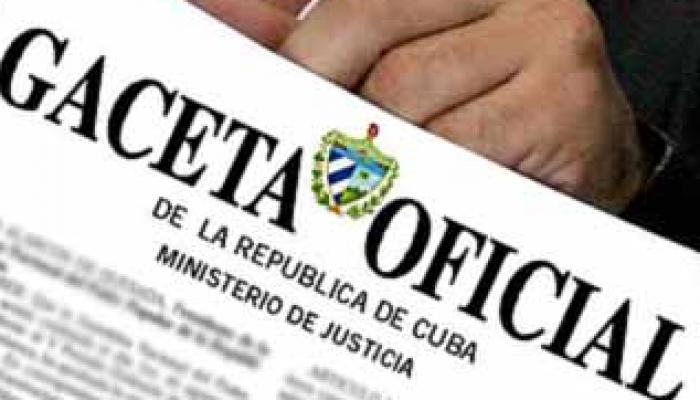
Cuba publishes new self-employment regulations
HAVANA (ACN) – Cuba’s Official Gazette on Tuesday (July 10) published the new self-employment (also known as cuentapropismo) regulations. Self-employment has been allowed since 2011, but the issuance of new licenses have been frozen for the past several years. Self-employed numbers on the Island have reached nearly 600,000.
The new regulations, which become official starting December 7 of this year, are endorsed by six higher-ranking regulations, five decree-laws, a decree and 14 complementary resolutions of the ministries involved in their implementation.
According to Resolution Number 12 of the Ministry of Labor and Social Security (MTSS), the changes include 123 new kinds of licenses, which have incorporated some of the 201 that existed previously.
Marta Feitó, first deputy Minister, specified during a press conference this week that 96 types of related licenses were unified into 28. The example given were those related to beauty services and the repair of assorted items.
She said the Cuban government will again grant licenses to new applicants of the 27 kinds of licenses that were frozen last year, such as those for renting homes, rooms and other spaces, gastronomic services in restaurants, private contractors and dressmakers or tailors.
The new law specifies that licenses issued will only be viable for one activity. To receive the new licenses applicants must submit a written description of the desired business and the place where it will be established, and in certain cases also declare the source of the business’s financing, among other requirements.
The category of food and beverage producer-seller that was allowed through a gastronomic services license for restaurants has been modified. There is now a license for bar and recreation services, as well as gastronomic services in restaurants.
Feitó explained that no more than one of these services will be authorized in the same legal address.
She added that in the future no licenses will be issued for wholesalers and retailers of agricultural products, operators of recreation equipment, purchasers and sellers of records, since they’ve found criminal activity involved with these services.
There is also a new stipulation that assures those holding a license, and who has employees and needs to be absent from the business because of illness (one’s own or of a family member), or needs to leave the company for a period of time, that license holder can appoint one of his/her employees to fulfill the management duties.
Those renting homes, rooms and other spaces may provide food service, as well as being able to provide other legal services, a benefit established by Decree 353, which amends the General Law of Housing.
According to Feitó, after the regulations come into force, the those receiving licenses will have up to 90 days to adjust business practices to adhere to the new law. These persons will be trained, as well as others involved in the process, before the deadline.
The new regulations are being disseminated in digital form, and two million copies of the Official Gazette will be gradually printed and sold in the newsstands throughout the country, although they will be distributed free of charge to the self-employed.
Feitó also said the current changes respond to the announced improvements to self-employment which aim to correct deficiencies and ensure that self-employment continues to progress in an orderly manner.
She added that some of the measures adopted are based on requests from some of the self-employed themselves, while others were written to improve the exercise and control of the activity.
“Self-employment,” she said, “is recognized in the guiding documents of the current socio-economic transformations, which is why it is the will of the State to continue developing it, especially since it has brought, among other benefits, an increase in the quality of goods and services offered, as well as facilitating the process of reordering work.”
As of last May, there were 591,456 self-employed persons in Cuba, representing 13 percent of country’s employment.
(From the Cuba News Agency/ACN)

